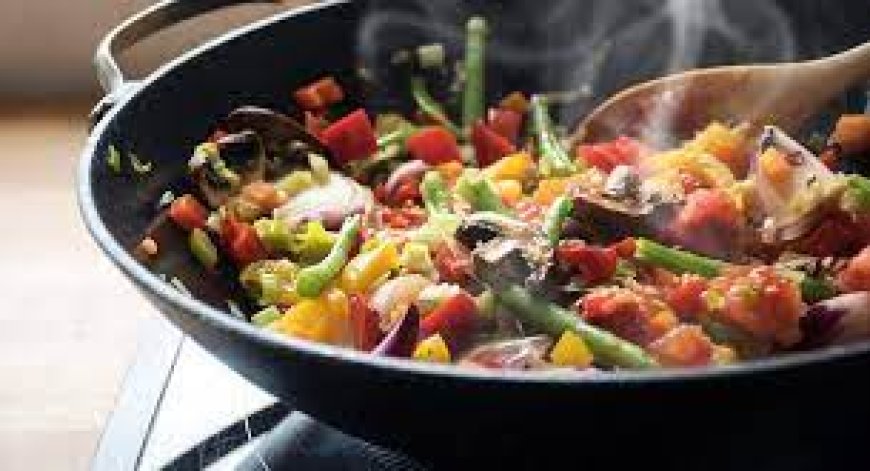Does Cooking Kill Nutrients? The Raw vs. Cooked Debate Just Got More Interesting
Does cooking kill nutrients? Discover the truth about raw vs. cooked foods, which nutrients are lost or enhanced, and how to maximize your diet for better health.

Introduction: Are You Losing Nutrients by Cooking Your Food?
For years, health enthusiasts have debated whether eating raw food is superior to cooked food. Some claim that cooking destroys essential vitamins and minerals, robbing food of its nutritional value. Others argue that cooking makes certain nutrients more bioavailable and easier to digest.
So, what’s the truth? Does cooking kill nutrients, or does it unlock hidden benefits? In this deep dive, we’ll explore the science behind raw vs. cooked foods, which nutrients are lost or enhanced through cooking, and how to get the most from your meals.
The Science of Cooking: What Happens to Nutrients?
Cooking alters food in several ways:
✔ Breaks down tough fibers, making some foods easier to digest.
✔ Reduces harmful compounds, like lectins and oxalates, found in raw plants.
✔ Destroys heat-sensitive vitamins, but enhances the absorption of certain antioxidants.
To understand whether cooking is good or bad, we need to look at how different cooking methods impact various nutrients.
Nutrients That Are Lost During Cooking
Some vitamins are more fragile than others, and heat can degrade or leach them out of food.
1. Vitamin C
- Highly sensitive to heat, water, and air.
- Cooking methods like boiling, steaming, and roasting can significantly reduce vitamin C levels.
? Related Study: Journal of Food Science on Vitamin C Loss
2. B Vitamins (B1, B2, B6, B12, Folate)
- Water-soluble B vitamins are easily lost in boiling and simmering.
- Up to 50% of folate (B9) can be destroyed by cooking.
? Related Study: National Institutes of Health on B Vitamins
3. Enzymes & Probiotics
- Raw foods contain digestive enzymes that aid nutrient absorption.
- Heat destroys enzymes above 118°F (48°C), affecting digestion.
- Fermented foods (like yogurt and kimchi) provide probiotics, but heating kills these beneficial bacteria.
? Related Resource: Harvard Health on Probiotics
Nutrients That Are Enhanced by Cooking
Contrary to popular belief, cooking isn’t all bad. Some nutrients actually become more bioavailable when food is cooked.
1. Lycopene (Tomatoes, Red Peppers, Watermelon)
- Cooking increases lycopene levels by breaking down plant cell walls.
- Lycopene is a powerful antioxidant linked to heart health and cancer prevention.
? Related Study: American Journal of Clinical Nutrition on Lycopene
2. Beta-Carotene (Carrots, Sweet Potatoes, Pumpkin)
- The body converts beta-carotene into vitamin A, which supports vision and immunity.
- Cooking boosts absorption by up to 650% compared to raw.
? Related Study: National Library of Medicine on Beta-Carotene
3. Iron & Zinc (Spinach, Legumes, Whole Grains)
- Cooking reduces phytic acid, an anti-nutrient that blocks mineral absorption.
- Light cooking makes iron and zinc more bioavailable.
? Related Resource: Cleveland Clinic on Iron Absorption
Cooking Methods: The Best & Worst for Nutrient Retention
How you cook matters. Some methods preserve more nutrients than others.
Best Cooking Methods for Nutrient Retention
✅ Steaming – Retains most vitamins and minerals while preserving texture.
✅ Sautéing with Healthy Fats – Enhances absorption of fat-soluble vitamins like A, D, E, and K.
✅ Roasting & Baking – Helps concentrate flavors while retaining many antioxidants.
✅ Pressure Cooking – Reduces cooking time, preserving nutrients better than boiling.
? Related Resource: Harvard School of Public Health on Cooking Methods
Worst Cooking Methods for Nutrient Loss
❌ Boiling – Water leaches out B vitamins and vitamin C.
❌ Deep-Frying – Destroys antioxidants and creates harmful trans fats.
❌ Microwaving for Long Periods – Rapid heating can degrade certain nutrients.
The Raw vs. Cooked Debate: Which is Better?
There’s no one-size-fits-all answer. The best diet includes both raw and cooked foods. Here’s how to balance them:
When to Eat Raw Foods:
✔ Fruits (oranges, berries, bananas) – High in vitamin C and antioxidants.
✔ Leafy Greens (spinach, arugula, kale) – Rich in folate and enzymes.
✔ Nuts & Seeds – Heating can destroy delicate omega-3 fats.
✔ Fermented Foods (yogurt, sauerkraut) – Cooking kills probiotics.
When to Eat Cooked Foods:
✔ Tomatoes & Red Peppers – Cooking enhances lycopene.
✔ Carrots & Sweet Potatoes – Increases beta-carotene availability.
✔ Beans & Legumes – Cooking removes anti-nutrients and improves digestion.
✔ Mushrooms – Heat releases powerful antioxidants.
Final Verdict: A Balanced Approach Wins
Rather than choosing one side of the raw vs. cooked debate, diversity is key. By mixing raw and cooked foods, you maximize nutrient intake while improving digestion and absorption.
Key Takeaways:
✔ Cooking can destroy heat-sensitive vitamins like vitamin C and folate.
✔ Cooking can enhance antioxidants like lycopene and beta-carotene.
✔ The best diet includes a balance of raw and cooked foods.
✔ Use gentle cooking methods like steaming and roasting to preserve nutrients.
By understanding how cooking affects different nutrients, you can make smarter food choices and optimize your health.
What's Your Reaction?
 Like
0
Like
0
 Dislike
0
Dislike
0
 Love
0
Love
0
 Funny
0
Funny
0
 Angry
0
Angry
0
 Sad
0
Sad
0
 Wow
0
Wow
0



















































